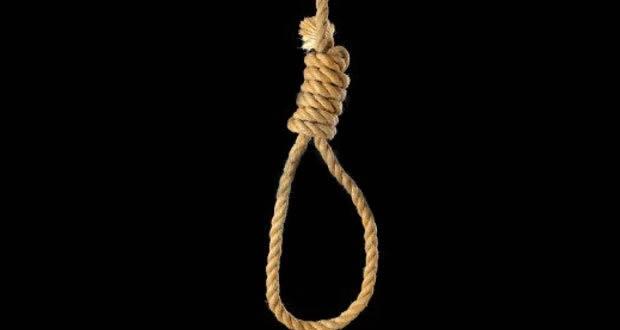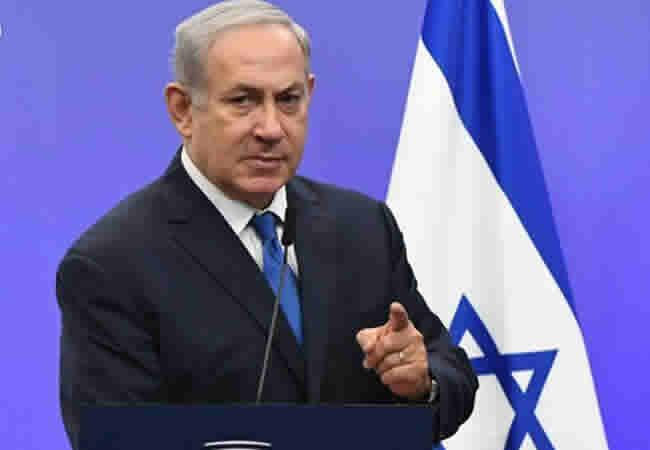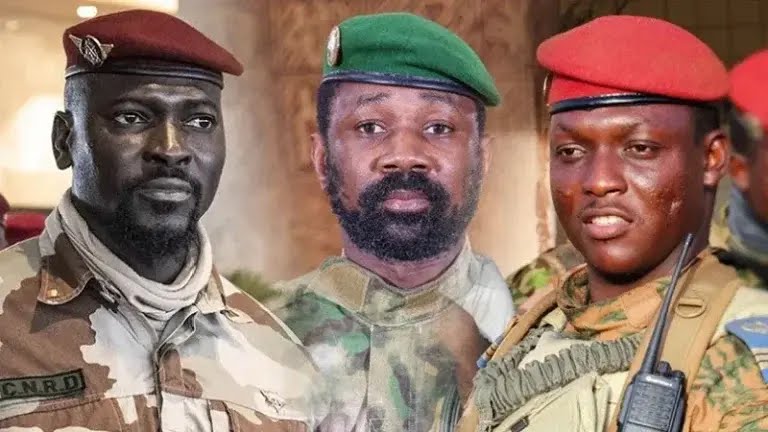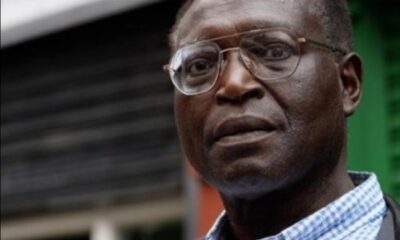Headline
Presidential Poll: Tinubu Closes Defence In Obi’s Petition With One Witness
Published
11 months agoon
By
Editor
President Bola Tinubu, on Wednesday, closed his defence to the petition that candidate of the Labour Party, LP, Mr. Peter Obi, filed to nullify his election victory.
Tinubu, through his team of lawyers led by Chief Wole Olanipekun, SAN, wrapped up his defence to the petition, after he presented one witness that testified before the Presidential Election Petition Court, PEPC, sitting in Abuja.
The witness, Senator Micheal Opeyemi Bamidele, in his evidence, maintained that votes President Tinubu got in Kano state at the end of the presidential election, was not properly recorded, insisting that there was a shortfall of about 10, 929 votes.
Senator Bamidele told the court that many international bodies that sent observers to the country, including the Economic Community of West African States, ECOWAS, filed a report after the election.
READ ALSO: Five Years After, Oba of Benin Approves Installation Of Urumwon Village Head
He told the court that the ECOWAS report on the presidential election dated February 27, was signed by a former President of Republic of Sierra Leone, Mr. Ernest Koroma.
Despite objection by Obi’s lead counsel, Dr. Livy Uzoukwu, the Justice Haruna Tsammani-led five-member panel admitted the ECOWAS report in evidence and marked it as Exhibit RA-27.
Obi’s lawyer said his team would adduce reasons why they opposed the admissibility of the report, in their final written address.
Continuing his testimony, the witness, confirmed a letter the LP wrote to INEC on April 25, 2022, wherein it forwarded its membership Register as well as its list of members in Anambra State, to the Commission.
Both documents from the LP to INEC, were admitted in evidence by the panel and marked as Exhibits RA-17 and RA-18.
READ ALSO: Tribunal: INEC Chair, Yakubu, To Testify Against Tinubu
While being cross-examined by counsel for the All Progressives Congress, APC, Prince Lateef Fagbemi, SAN, the witness, who said he was the former Chairman of Senate Committee on Judiciary and currently the Majority Leader of the Senate, told the court that the list of membership the LP forwarded to INEC prior to the presidential election, did not contain Obi’s name.
He equally told the court that as an Attorney that practiced in USA since 1999, there could not be a criminal conviction against Tinubu, when no charge was filed against him.
The witness equally tendered original documents containing evidence of his membership of the New York Bar in the USA.
“As a longstanding associate of President Tinubu for over 25 years now, I know that he is a Nigerian citizen by birth,” the witness added.
In a counter move, counsel to the Petitioners, Dr. Uzoukwu, SAN, through the witness, tendered the final report of the European Union Election Observation Mission to Nigeria, which impugned the conduct and outcome of the 2023 general elections.
Notwithstanding objections from all the Respondents, the court admitted a certified copy of the EU report and marked it as Exhibit S-2.
READ ALSO: Stop Making Yourself Stumbling Block At The Tribunal, Neo Africana Centre Tells INEC
The witness, was asked to read a portion of the ECOWAS report which he tendered in evidence, where it stated that there was wanton destruction of properties and killings in the build up to the elections, including the murder of a LP’s Senatorial candidate in Enugu state.
After he read the portion, the witness, said: “My Lords, I do not agree with this aspect. I only accept the conclusion. The killings that were experienced in the South East was due to the IPOB situation and not because of the election,” he insisted.
On Tinubu’s alleged involvement in drug related crime, the witness, maintained that contrary to the position of the Petitioners, he told the court that what was decided by the US Court was a civil proceeding and not a criminal forfeiture.
Meanwhile, after the witness was discharged from the box, counsel to the APC, Fagbemi, SAN, told the court that the party would not call any witness or tender exhibits in defence of the petition.
Consequently, the panel, which placed reliance on Paragraph 46 of the First Schedule to the Electoral Act, directed the Respondents to within 10 days, file their final brief of argument, while it gave the Petitioners seven days to also file their own.
It held that upon receipt of the Petitioners’ process, the Respondents, should file their reply within five days.
The court said the date for adoption of all the processes, preparatory to its final judgement on the case, would be communicated to all the parties.
You may like

Iran on Saturday hanged at least seven people, including two women, while a member of its Jewish minority is at imminent risk of execution as the Islamic Republic further intensified its use of capital punishment, an NGO said.
Parvin Mousavi, 53, a mother of two grown-up children, was hanged in Urmia prison in northwestern Iran along with five men convicted in various drug-related cases, the Norway-based Iran Human Rights (IHR) said in a statement.
In Nishapur in eastern Iran, a 27-year-old woman named Fatemeh Abdullahi was hanged on charges of murdering her husband, who was also her cousin, it said.
IHR says it has tallied at least 223 executions this year, with at least 50 so far in May alone. A new surge began following the end of Persian New Year and Ramadan holidays in April, with 115 people including six women hanged since then, it said.
READ ALSO: Burkina Faso, Mali, Niger Finalise Regional Alliance Project
Iran carries out more recorded executions of women than any other country. Activists say many such convicts are victims of forced or abusive marriages.
Iran last year carried out more hangings than in any year since 2015, according to NGOs, which accuse the Islamic republic of using capital punishment as a means to instill fear in the wake of protests that erupted in autumn 2022.
“The silence of the international community is unacceptable,” IHR director Mahmood Amiry-Moghaddam told AFP.
“Those executed belong to the poor and marginalised groups of Iranian society and didn’t have fair trials with due process.”
READ ALSO: Israeli Leaders Disagree Over Post-war Gaza Governance Amid US Pressure
‘Killing machine’
IHR said Mousavi had been in prison for four years. It cited a source as saying she had been paid the equivalent of 15 euros to carry a package she had been told contained medicine but was in fact five kilos of morphine.
“They are the low-cost victims of the Islamic Republic’s killing machine, which aims at instilling fear among people to prevent new protests,” added Amiry-Moghaddam.
The group meanwhile said a member of Iran’s Jewish community, which has drastically reduced in numbers in recent years but is still the largest in the Middle East outside Israel, was at imminent risk of execution over a murder charge.
Arvin Ghahremani, 20, was convicted of murder during a street fight when he was 18 and is scheduled to be executed in the western city of Kermanshah on Monday, it said, adding it had received an audio message from his mother Sonia Saadati asking for his life to be spared.
READ ALSO: 50-year-old Man Dies While Watching Football Match In Lagos Bar
His family is seeking to ask the family of the victim to forgo the execution in line with Iran’s Islamic law of retribution, or qesas.
Also at risk of execution is Kamran Sheikheh, the last surviving member of a group of seven Iranian Kurdish men who were first arrested between early December 2009 and late January 2010 and later sentenced to death for “corruption on earth” over alleged membership of extremist groups, it said.
Six men convicted in the same case have been executed in the last months almost one-and-a-half decades after their initial arrest, the last being Khosro Besharat who was hanged in Ghezel Hesar prison outside Tehran this week.
There has been an international outcry meanwhile over the death sentence handed out last month to Iranian rapper Toomaj Salehi, seen by activists as retaliation for his music backing the 2022 protests. His lawyers are appealing the verdict.
AFP
Headline
Israeli Leaders Disagree Over Post-war Gaza Governance Amid US Pressure
Published
4 hours agoon
May 18, 2024By
Editor
New divisions have emerged among Israel’s leaders over post-war Gaza’s governance, with an unexpected Hamas fightback in parts of the Palestinian territory piling pressure on Prime Minister Benjamin Netanyahu.
The Israeli army has been battling Hamas militants across Gaza for more than seven months while also exchanging near-daily fire with Iran-backed Hezbollah forces along the northern border with Lebanon.
But after Hamas fighters regrouped in northern Gaza, where Israel previously said the group had been neutralised, broad splits emerged in the Israeli war cabinet in recent days.
Netanyahu came under personal attack from Defence Minister Yoav Gallant for failing to rule out an Israeli government in Gaza after the war.
The Israeli premier’s outright rejection of post-war Palestinian leadership in Gaza has broken a rift among top politicians wide open and frustrated relations with top ally the United States.
Experts say the lack of clarity only serves to benefit Hamas, whose leader has insisted no new authority can be established in the territory without its involvement.
READ ALSO: 400 Bodies Found In Mass Grave In Gaza Hospital
“Without an alternative to fill the vacuum, Hamas will continue to grow,” International Crisis Group analyst Mairav Zonszein told AFP.
Emmanuel Navon, a lecturer at Tel Aviv University, echoed this sentiment.
“If only Hamas is left in Gaza, of course they are going to appear here and there and the Israeli army will be forced to chase them around,” said Navon.
“Either you establish an Israeli military government or an Arab-led government.”
US pressure
Gallant said in a televised address on Wednesday: “I call on Prime Minister Benjamin Netanyahu to make a decision and declare that Israel will not establish civilian control over the Gaza strip.”
The premier’s war planning also came under recent attack by army chief Herzi Halevi as well as top Shin Bet security agency officials, according to Israeli media reports.
READ ALSO: Israel Bombs Gaza, Fights Hamas Around Hospitals
Netanyahu is also under pressure from Washington to swiftly bring an end to the conflict and avoid being mired in a long counterinsurgency campaign.
Washington has previously called for a “revitalised” form of the Palestinian Authority to govern Gaza after the war.
But Netanyahu has rejected any role for the PA in post-war Gaza, saying Thursday that it “supports terror, educates terror, finances terror”.
Instead, Netanyahu has clung to his steadfast aim of “eliminating” Hamas, asserting that “there’s no alternative to military victory”.
Experts say confidence in Netanyahu is running thin.
“With Gallant’s criticism of Netanyahu’s failure to plan for the day after in terms of governing Gaza, some real fissures are beginning to emerge in the Israeli war cabinet,” Colin P. Clarke, director of policy and research at the Soufan Group think tank, wrote on X, formerly Twitter.
“I’m not sure I know of many people, including the most ardent Israel supporters, who have confidence in Bibi,” he said, using Netanyahu’s nickname.
READ ALSO: Fight-to-finish: Israel Deploys New Military AI In Gaza War
Hostage ‘impasse’
The Gaza war broke out after Hamas’s attack on southern Israel which resulted in the deaths of more than 1,170 people, mostly civilians, according to an AFP tally of Israeli official figures.
The militants also seized about 250 hostages, 125 of whom Israel estimates remain in Gaza, including 37 the military says are dead.
Israel’s military retaliation has killed at least 35,386 people, mostly civilians, according to the Hamas-run Gaza’s health ministry, and an Israeli siege has brought dire food shortages and the threat of famine.
Many Israelis supported Netanyahu’s blunt goals to seek revenge on Hamas in the aftermath of the October 7 attack.
But now, hopes have faded for the return of the hostages and patience in Netanyahu may be running out, experts said.
On Friday, the army announced it had recovered bodies of three hostages who were killed during the October 7 attack.
After Israeli forces entered the far southern city of Rafah, where more than a million displaced Gazans were sheltering, talks mediated by Egypt, the United States and Qatar to release the hostages have ground to a standstill.
“The hostage deal is at a total impasse — you can no longer provide the appearance of progress,” said Zonszein of the International Crisis Group.
“Plus the breakdown with the US and the fact that Egypt has refused to pass aid through Rafah — all those things are coming to a head.”
Headline
Burkina Faso, Mali, Niger Finalise Regional Alliance Project
Published
7 hours agoon
May 18, 2024By
Editor
Junta-run Burkina Faso, Mali and Niger have finalised plans to form a confederation after turning their backs on former colonial ruler France to seek closer ties with Russia.
Their foreign ministers met Friday in Niger’s capital Niamey to agree on a text establishing the Confederation of the Alliance of Sahel States (AES).
“The objective was to finalise the draft text relating to the institutionalisation and operationalisation of the Confederation of the Alliance of Sahel States (AES)”, said Niger Foreign Minister Bakary Yaou Sangare as he read the final statement late Friday.
READ ALSO: Court Jails Social Media Influencer For Celebrity Scam
He said the text would be adopted by the heads of state of the three countries at a summit, without specifying the date.
“We can consider very clearly, today, that the Confederation of the Alliance of Sahel States (AES) has been born,” Malian Foreign Minister Abdoulaye Diop said after meeting General Abdourahamane Tiani, the head of Nigerien military regime.
The third foreign minister at the meeting was Burkina Faso’s Karamoko Jean-Marie Traore.
READ ALSO: Tinubu Okays Payment Of N3.3tn Power Sector Debts, Gencos, Gas Producers To Get N1.3tn, $1.3bn
The Sahel region has been subject to deadly jihadist violence for years, which they accused France of not being able to curb.
The three countries said late January they were quitting The Economic Community of West African States (ECOWAS), which they said was under French influence, to create their own regional grouping.
AFP

Shettima Launches NEDC’s School Enrollment Drive Programme

Edo Police Break Silence On Operatives Fighting Dirty In Viral Video

Excitement, Dance As ‘Looted Ancestral Stools’ Return To Oba Of Benin
Trending

 Headline5 days ago
Headline5 days agoLady Arrested For Allegedly Harassing, Cyberstalking Crown Prince Of Benin Kingdom [VIDEO]

 Entertainment4 days ago
Entertainment4 days agoVIDEO: Drama As Portable Jumps Gate To Evade Police Arrest

 News5 days ago
News5 days agoEdo Govt Takes Custody Of 4-year-old Girl Used For Adult Content

 Headline4 days ago
Headline4 days ago32-year-old Nigerian Doctor Killed In US, Father Mourns

 News4 days ago
News4 days agoMan Arrested For Invading Plateau Bank With Bomb

 Headline5 days ago
Headline5 days ago‘You’re Guilty’ – Judge Roars, Jailed UK-based Nigerian Pastor, Wife 34 Years For Raping, Assaulting Members

 Headline4 days ago
Headline4 days agoPolice Give Tips On How To Report Erring Officers

 News2 days ago
News2 days agoUK Denies 74-year-old Mam Permanent Residency After 42 Years Stay

 News4 days ago
News4 days agoSee Lagos Environment Commissioner’s Funny Reply To Resident’s Complaint About Neighbours Moaning Loudly At Night

 Metro5 days ago
Metro5 days agoThree Suspects Connected To Series Of Kidnappings In Delta Arrested

























